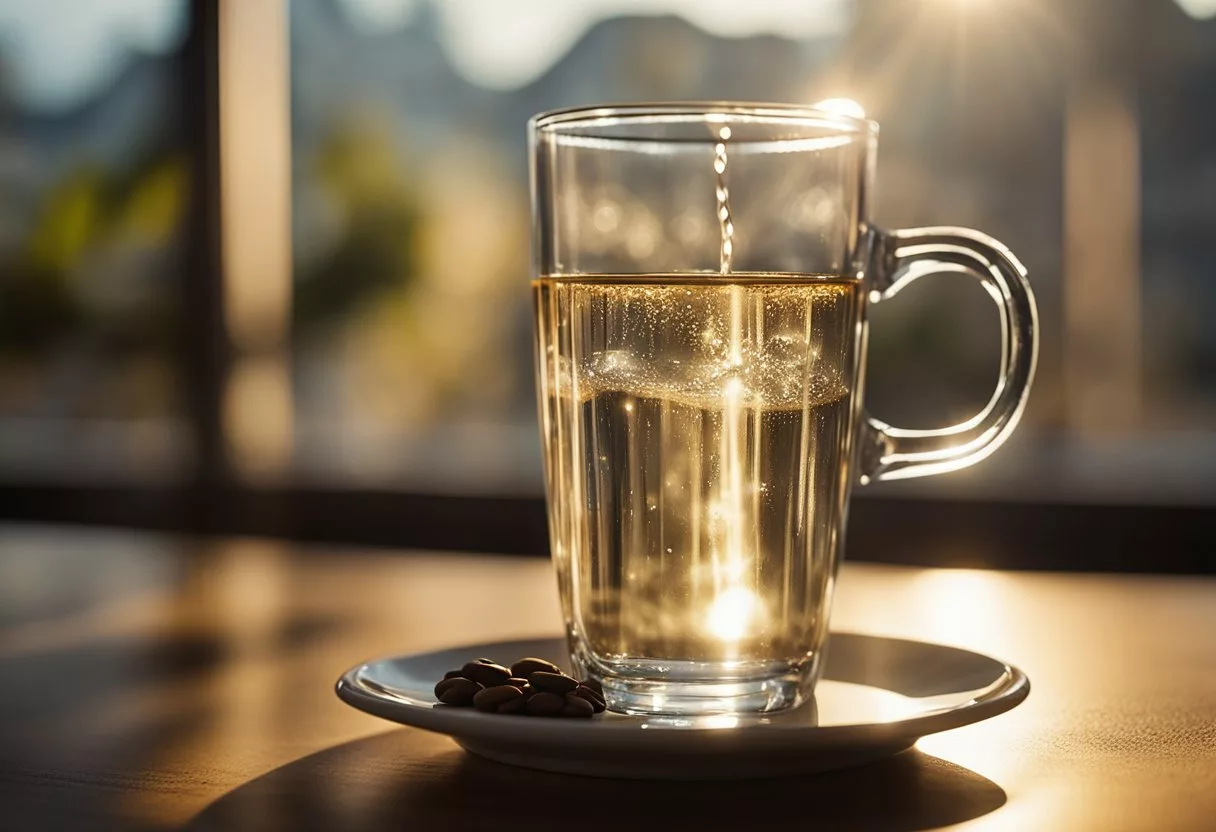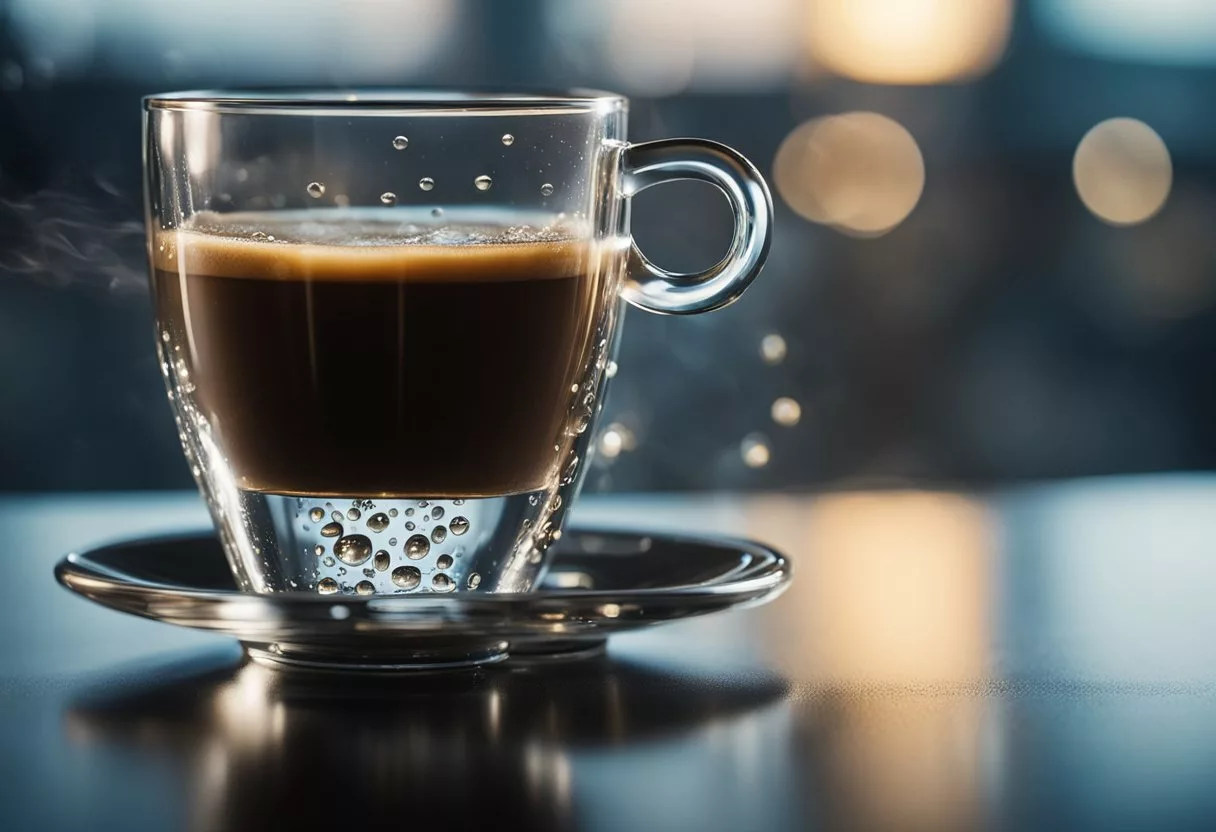Many people wonder if drinking coffee can contribute to dehydration. Coffee, despite containing caffeine, is unlikely to dehydrate you. While it is true that caffeine can have a mild diuretic effect, the amount of water in a cup of coffee compensates for this effect.

Regular coffee drinkers are even less likely to experience dehydration symptoms. Their bodies tend to adapt to caffeine over time. Drinking coffee, in moderation, can still help maintain overall fluid balance in the body.
Thus, enjoying a morning cup of coffee does not negatively impact your hydration levels. For those looking to maintain proper hydration, drinking water throughout the day remains the most effective strategy. For more details, read this Cleveland Clinic article on coffee.
Understanding Hydration and Dehydration

Hydration is essential for many bodily functions. Dehydration occurs when the body loses more fluids than it takes in. Both conditions impact health in various ways.
The Role of Water and Fluids in the Body
Water makes up about 60% of the human body and is crucial for maintaining life. It helps regulate body temperature, lubricates joints, and aids digestion. Fluids are also involved in nutrient transport and waste removal.
Sweat, urine production, and even breathing contribute to fluid loss. Drinking water and consuming other fluids help replenish these lost fluids. The body needs a balance between fluid intake and output to function properly. This balance is known as fluid balance.
Consuming water-rich foods like fruits and vegetables can also contribute to hydration. Proper hydration supports energy levels, concentration, and physical performance. Keeping track of your daily water intake can help maintain this balance.
Symptoms and Effects of Dehydration
Dehydration happens when the body loses more fluids than it gains. Common symptoms include dry mouth, fatigue, and dark yellow urine. More severe dehydration can cause dizziness, confusion, and rapid heart rate.
Dehydration affects various bodily functions. It can lead to decreased urine production, reduced sweat, and impaired cognitive abilities. In extreme cases, it may cause kidney failure and other serious health issues.
Knowing the symptoms of dehydration helps in early detection and treatment. It’s essential to drink fluids throughout the day, especially during physical activity or hot weather. If symptoms persist, seeking medical attention is important to prevent complications.
For more information, click here.
Coffee’s Effects on Hydration

Coffee contains caffeine, which has mild diuretic properties. Understanding how coffee affects hydration involves looking at the impact of caffeine, findings from recent research, and the importance of drinking coffee in moderation.
Caffeine and Diuretic Properties
Caffeine is a natural stimulant found in coffee. It can increase urination because it has mild diuretic properties. Diuretics make the kidneys send more sodium into the urine. This causes more water to leave the body through urine.
Each cup of coffee contains between 90-200 milligrams of caffeine. This may be enough to cause a slight increase in urination. For healthy adults, the diuretic effect is generally mild. Decaf coffee has much less caffeine and therefore less diuretic impact.
Research on Coffee and Hydration Status
Recent studies suggest that coffee does not cause significant dehydration. Coffee is mostly water, so its liquid content can help keep the body hydrated. Regular coffee drinkers may experience even fewer diuretic effects.
One study showed that fluid intake from coffee does not differ much from other beverages. Regular consumption seems to decrease its impact on urination. For most healthy adults, drinking coffee contributes positively to their daily fluid intake.
Moderation in Coffee Consumption
Drinking coffee in moderation is key. Consuming moderate amounts helps avoid any potential negative effects on hydration. Five cups or fewer per day are generally safe for most people.
Switching to decaf coffee can reduce caffeine intake while still enjoying coffee’s flavor. For anyone with concerns about dehydration, balancing coffee with other hydrating fluids like water is good practice. Healthy adults should aim to maintain a balanced fluid intake for optimal hydration.
Health Implications of Coffee Intake
Coffee can provide health benefits, but excessive caffeine can lead to risks. The key is moderation, considering individual factors like age and existing health conditions.
Potential Benefits and Risks of Coffee
Moderate coffee intake may have several health benefits. It has been linked to a lower risk of several diseases, such as type 2 diabetes, Parkinson’s disease, and certain cancers. Coffee also contains antioxidants that help fight cell damage. Caffeine levels in coffee can improve alertness, focus, and mood by stimulating the central nervous system.
However, there are also risks, especially with high doses of caffeine. Overconsumption can lead to headaches, insomnia, increased blood pressure, and digestive issues. Pregnant women and individuals sensitive to caffeine should be cautious, as excessive intake can lead to complications. For kids, caffeine is generally discouraged due to potential impacts on developing bodies and increased anxiety levels.
Coffee Intake Recommendations
For most adults, moderate coffee consumption is considered safe. It’s generally recommended to keep caffeine consumption below 400 mg per day, which equates to about 4 cups of brewed coffee. This limit reduces the risk of adverse effects while allowing individuals to enjoy health benefits like improved mental alertness.
Pregnant women should limit caffeine to less than 200 mg per day to avoid potential risks to the fetus. For kids and adolescents, it’s best to minimize or avoid caffeine altogether to prevent negative health impacts.
Caffeine tolerance varies by individual; some people may experience adverse effects even with moderate coffee intake. Healthcare professionals should be consulted for personalized recommendations, particularly for those with preexisting conditions or specific health concerns.
Exploring Beverage Choices for Hydration
Different beverages play unique roles in maintaining hydration. Understanding the hydration potential of various drinks helps in choosing the best options for different needs.
Comparing Coffee to Other Beverages
Coffee, despite its caffeine, is largely composed of water. Studies indicate that moderate coffee intake does not significantly dehydrate. In fact, coffee can contribute to daily fluid intake. Other beverages also offer varied hydration benefits.
- Water: The most essential for hydration, containing no calories or caffeine.
- Tea: Similar to coffee, it is hydrating and contains water.
- Sports Drinks: Good for replenishing electrolytes lost during intense exercise.
- Soda and Diet Soda: Less hydrating due to sugar and artificial sweeteners.
- Energy Drinks: Often high in caffeine and sugar, which can lead to dehydration.
- Milk: Provides hydration and essential nutrients like calcium.
- Fruit Juices: Hydrating but contain natural sugars.
- Decaf Coffee: Hydrates like regular coffee but without the stimulant effects of caffeine.
Hydration Strategies for Different Populations
Different groups have unique hydration needs. Athletes, for example, need to replace fluids and electrolytes lost during sports.
- Athletes: Should drink water and sports drinks to replenish sodium and fluids.
- Children: Need easily accessible and appealing drinks like water and milk.
- Elderly: Often require reminders and easily digestible fluids like decaf tea.
- Caffeine-Sensitive Individuals: Should opt for decaf beverages and herbal teas to avoid dehydration and other side effects.
Fluid needs vary depending on activity level, climate, and health conditions. Tailoring beverage choices to individual needs ensures optimal hydration.
